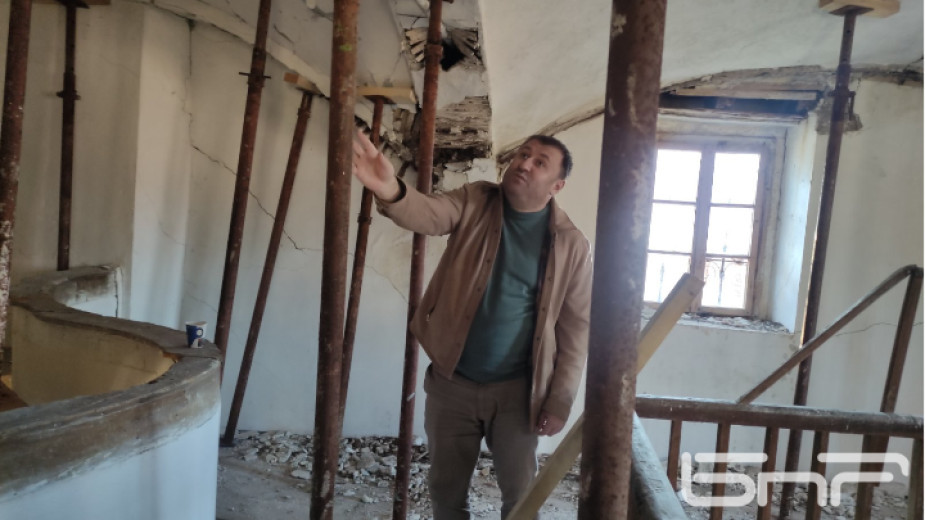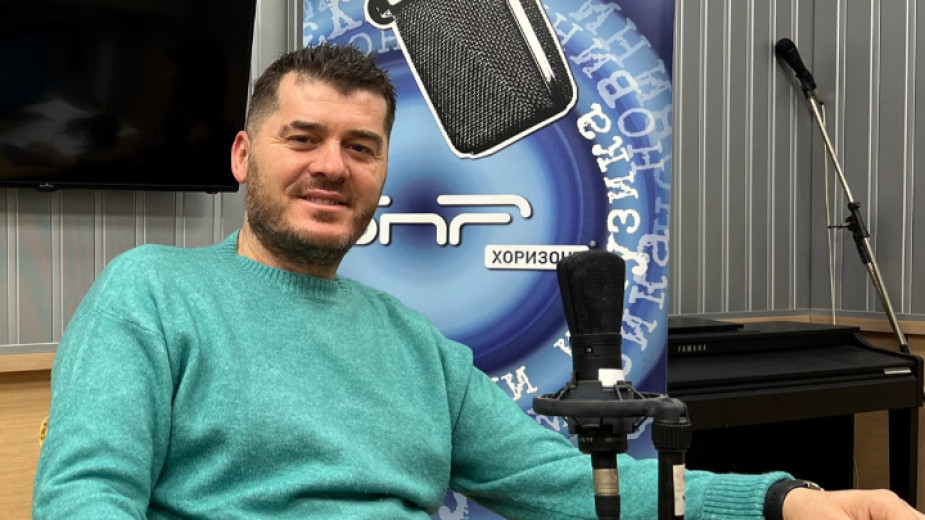How often do we thank one another? Do we try to find a reason to do that, or do we not think about it al all? January 11 is International Thank You Day. There are different definitions, but let us just say that gratitude is the act by which we gift kindness to someone. And add that a grateful person is a happy person.
In Bulgaria, gratitude is the biggest reward for the things done by people like Lazar Radkov - one of the “Awakeners of the decade” because of his campaigns “Bottle caps for the future” and “Rescue clubs for the future”, the Albanian Leo Kadeli who helps people in need, or Turhut Ismail from the village of Iskra in Plovdiv region, who is Muslim but has been involved in the restoration of more than 20 Orthodox churches.
“I would like to leave something behind, something that doesn’t exist now – a church built on a bridge,” says real estate developer Turhut Ismail about his new dream. The location has already been chosen, the financing - provided almost in its entirety, and the church, to be called St. Trifon, will be in Venets village, Karnobat municipality. Ismail raises the money for the construction of new churches, or the restoration of old ones from friends, he is helped by religious communities, or finds fundingg under European programmes. He says he is grateful, but also annoyed by all the red tape that is an obstacle.
“A person who has nothing but helps nevertheless is a person who is most deserving of the award,” said two years ago Leo Kadeli, who is Albanian, after being nominated for Enlightener of the Year. He has helped dozens of people in need in this country, but in his latest interview for the Bulgarian National Radio from a few days ago, he said that besides gratitude, he has also come up against suspicion and distrust:
“The world exists thanks to both kinds of people. If only the one kind existed and the others didn’t, there would probably be no room for what I do. There are more than 105,000 followers of the platform “Friends, LEND A HELPING HAND”, I would like to thank them and I hope that each one of them is doing something good.”
Do we show our gratitude, and what do we say “thank you” for most often? Radio Bulgaria looked for the answers to these questions in a vox pop:
“Every time I pray I start with the words “thank you”, says Nikoleta. “I am grateful for being alive and healthy. I hope one day to say “thank you” for the fact we are living in peace.”
“The thing that matters most in a world that seems to be falling apart is not to hurt the other person, the person who lives differently from you,” says Nikolay.
“We ought to be grateful for all things in this life,” says Sava. “For the fact we exist, for having friends. What I have been seeing in my own circle of friends is that people have been thinking more and more about the things that matter in life, and I hope that that is so with all other people as well. I hope children and young people will learn to be grateful because it seems to me “thank you” are words that are not part of their vocabulary very often.”
“A grateful person is a happy person because gratitude helps us realize what we have,” says Margarita. “I am grateful for living in the best version of the world that has ever existed, that I was born in a part of the world where there is clean water and food, available health care, a roof over our heads, and the freedom to express our opinion without fear. I am grateful to my family for the care we have been taking of one another, and most of all for the gift of love.”
Translated and posted by Milena Daynova
Photos: pixabay, BNR-Burgas, Juliana Kornazheva
On February 16, Radio Bulgaria celebrates its 89th anniversary . Throughout these years, our multilingual media has been not only a channel of information, but also an invaluable link with our audience around the world. Today, Radio Bulgaria offers rich..
At various times in its existence, the BNR's Directorate of Foreign Language Broadcasts, now known as Radio Bulgaria, the multimedia multilingual platform of Bulgarian National Radio, was more than just a workplace for a number of popular journalists...
February 16, 2025 marks the 127th anniversary of the first bulletin of the Bulgarian Telegraph Agency, signed by its first director Oscar Iskander. The agency was established in 1898 by a decree of Prince Ferdinand I. Just like 127 years ago, today the..
On February 16, Radio Bulgaria celebrates its 89th anniversary . Throughout these years, our multilingual media has been not only a channel of information,..
At various times in its existence, the BNR's Directorate of Foreign Language Broadcasts, now known as Radio Bulgaria, the multimedia multilingual platform..
February 16, 2025 marks the 127th anniversary of the first bulletin of the Bulgarian Telegraph Agency, signed by its first director Oscar Iskander. The..

+359 2 9336 661
